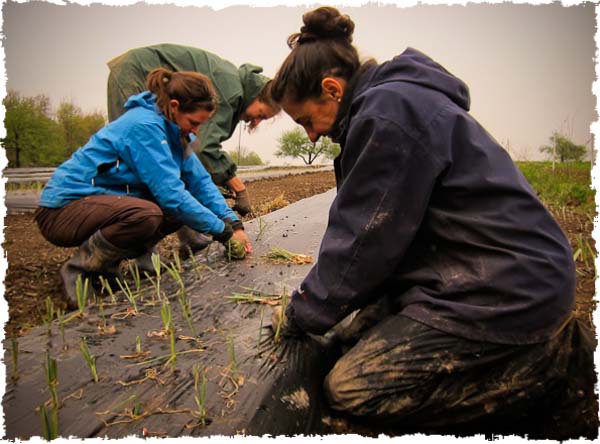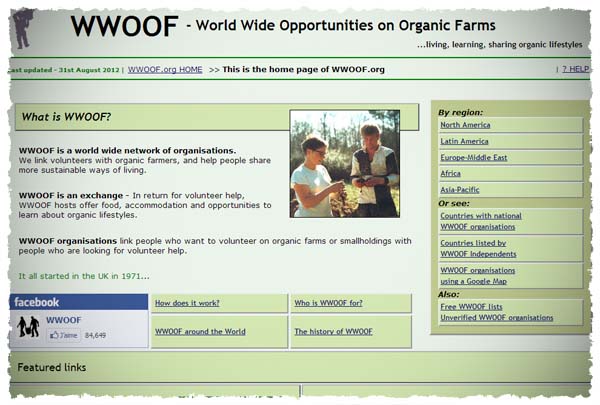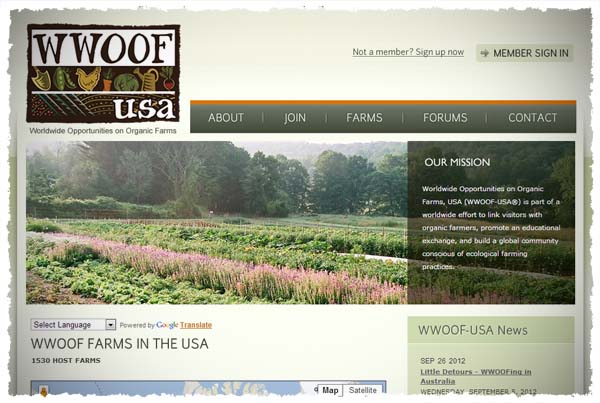Make Sure Farming Is For You, Volunteer On A Farm First
/By now you have seen Food Inc. You have read Michael Pollan's Omnivoure's Dilemma. You are all amped up about slow food and you are ready to go out and start a farm of your own! Well, it's time to pump the breaks and take a look at how serious of a decision that is. Growing food and working the land is nothing short of amazing, but there are a few steps you should take before making a career change.
Starting a farm is a major life change, in more ways than you can imagine. The toils and troubles that come with the territory can never be accurately portrayed in any documentary, on the screen or in print. Before you dive headlong into the hardest thing that anyone can choose to do, start by taking baby steps. You will be happy that you did.
More and more people are doing the same thing that I chose to do. I left my job in New York City. I left my apartment, benefits, paycheck, carbon-fiber racing bicycle, and solidarity of routine life for the endurance sprint that is farm life. I took my time to get here though, and I took some very necessary steps to ensure that this is something I want to do for life.
The wonderful thing about gardening is that really anyone can do it. Anyone can, in theory, buy seeds, put them in the ground, add some water, and hopefully something will grow. The difference between farmers and gardeners is that gardeners can have an entire crop fail and they still get a paycheck, because it is a hobby. If a crop fails on the farm, that means a major hit in income resulting any number of things including the loss of your livelihood.
You may crawl down the rabbit hole and figure out that farming is the most rewarding thing you can do with you life, like I did. Or you may stop short of that extreme and realize you're going to be a heck of a gardener. You may also decide that you place in slow food is better suited working for a non-profit, working the office of a farm, or doing one of the other thousands of jobs that this movement is creating.
Farm Volunteer with WWOOF.org
The best way to volunteer on a farm is to try WWOOFing. WWOOF stands for World Wide Opportunities on Organic Farms. WWOOF is an organization that helps to pair organic farms with volunteers that are looking to learn more about sustainable lifestyles. There are WWOOFing farms in just about every country all over the world. Which is great, because if you like to farm and want to travel on the cheap, you can schedule a stay at a WWOOFing farm and you meals and housing will be taken care of (usually) for the duration of your vacation.
Why WWOOFing works so well with people who want to farm, like you, is that there is already an understanding about accepting volunteers on the farm. Training inexperienced people takes time and effort, and can often be more trouble than it is worth. I know a farmer who had a WWOOFer that thought her baby carrots were weeds and picked out all of the seedlings in the bed, ouch. On a WWOOF farm the understanding is already there that you may not be experienced, but you are willing to learn, and the farmer is willing to teach.
A WWOOFing Experience to Suit Your Needs
I have visited dozens of WWOOFing farms. They are not all created equal. Some only ask that you work a couple of hours a day, some the entire day. Some offer an air conditioned bedroom and a flush toilet, some offer a place for you to pitch a tent with an outdoor composting toilet. For the most part the details are laid out in the individual profiles of the farms.
There is not just a difference in accommodations. There are also big differences in the types of farms you can work at. You can find a WWOOF farm that specializes in vegetables, beef cattle, mushrooms, dairy goats, and everything in-between. The most common are organic vegetable farms.
I used the WWOOF USA website to arrange most of my farm
Alternatives to WWOOFing
While I think WWOOFing is one of the best ways to find a farm experience, it certainly is not the only place. You can find a farm near you on LocalHarvest.org and write to them asking about volunteer opportunities. If you are a member of a CSA you can approach them about opportunities at their farm. You may even be able to find a farm at your local farmers market.
Things to Keep In Mind
You are there to volunteer. You may be pushed a little out of your comfort zone, but that is farming. That being said, this is the first step and you do not want to be taken advantage of. If you feel like a host farmer is treating you poorly let them know, or just leave. It goes the other way too. You do not want to take advantage of the farmer. It would be bad form to sit in the field and dream the day away not getting anything done, only to stuff your face full of free food at dinner that evening.
Be Prepared to Farm
Come prepared to get dirty. Wear sturdy pants or decent shorts if it is hot out. Bring your own work gloves. On really hot days light weight button long sleeve shirts are cooler than any cotton t-shirt. the Buttons let more air in, the fabric won't stick to you as much and will dry quicker, and the long sleeves keep the sun off your arms. That is why people in the dessert dress is light-colored loose clothing. You don't have to worry to much about looking fashionable. I buy all of my farm clothes at the Good Will, especially the long sleeve work shirts. What better way to stick it to your corporate job than to wear a work shirt on the farm?
Sun block, sun block, sun block.
You Are There To Have Fun
Farming is incredible. It is fulfilling both in mind and body. There is nothing better than sitting down (with a beer) at the end of a long day of work and kicking your feet up. Remember that. Whether you are working for two days or two hundred (you can WWOOF for over a year at some places) you are there to enjoy the experience.
What's next in farming for you?
After you have volunteered once, twice, a dozen times, and you still love it, it may be time to consider an apprenticeship. Looking for, applying to, and surviving a farm apprenticeship deserves a blog post all of it's own.



